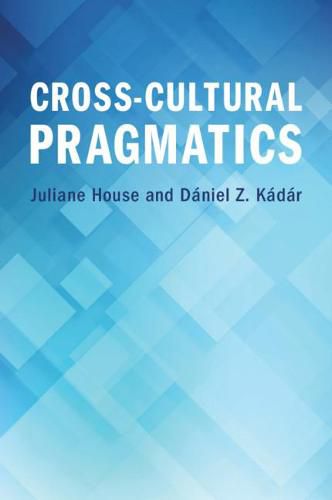Readings Newsletter
Become a Readings Member to make your shopping experience even easier.
Sign in or sign up for free!
You’re not far away from qualifying for FREE standard shipping within Australia
You’ve qualified for FREE standard shipping within Australia
The cart is loading…






This book provides a cutting-edge introduction to cross-cultural pragmatics, a field encompassing the study of language use across linguacultures. Cross-Cultural Pragmatics is relevant for a variety of fields, such as pragmatics, applied linguistics, language learning and teaching, translation, intercultural communication and sociolinguistics. Written by two leading scholars in the field, this book offers an accessible overview of cross-cultural pragmatics, by providing insights into the theory and practice of systematically comparing language use in different cultural contexts. The authors provide a ground-breaking, language-anchored, strictly empirical and replicable framework applicable for the study of different datatypes and situations. The framework is illustrated with case studies drawn from a variety of linguacultures, such as English, Chinese, Japanese and German. In these case studies, the reader is provided with contrastive analyses of language use in important contexts such as globalised business, politics and classrooms. This book is essential reading for both academics and students.
$9.00 standard shipping within Australia
FREE standard shipping within Australia for orders over $100.00
Express & International shipping calculated at checkout
This book provides a cutting-edge introduction to cross-cultural pragmatics, a field encompassing the study of language use across linguacultures. Cross-Cultural Pragmatics is relevant for a variety of fields, such as pragmatics, applied linguistics, language learning and teaching, translation, intercultural communication and sociolinguistics. Written by two leading scholars in the field, this book offers an accessible overview of cross-cultural pragmatics, by providing insights into the theory and practice of systematically comparing language use in different cultural contexts. The authors provide a ground-breaking, language-anchored, strictly empirical and replicable framework applicable for the study of different datatypes and situations. The framework is illustrated with case studies drawn from a variety of linguacultures, such as English, Chinese, Japanese and German. In these case studies, the reader is provided with contrastive analyses of language use in important contexts such as globalised business, politics and classrooms. This book is essential reading for both academics and students.